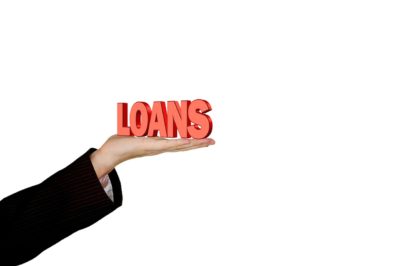
In America, paying back loans and working off credit card balances have become a standard part of life for many millennials. In fact, as you can see here, it was found that those between the ages of 25 and 34 have an average debt of $42,000. Despite over 44 million Americans having student loans, student debt only accounts for 16 percent of the total debt, with 25 percent being owed in credit card balances. It has become a part of life in the US, with more people taking out credit cards and using other lenders to stay on top of their finances.
Another increasingly popular method is to take out a personal loan. They’re not as well known as the now standard method of getting a credit card, but personal loans do offer a means by which you can borrow money in a different way to how credit cards work. Here, we’ll be exploring personal loans, credit cards, and which method of lending is best for you.
What is a personal loan?
Many people working their way through their student loan will dread the thought of having another loan to pay off, but for many people, personal loans will suit their needs better than credit cards. Personal loans have become more appealing to the general public as while they do take the form of a loan, they have fewer strings attached and can enhance your credit rating if you pay it off in the timeframe provided. Much like credit cards, you can use your personal loan on whatever you want, from a new car to your next vacation.

While people in debt will use personal loans as many of the best offers don’t require the borrower to put down any collateral to get the loan, others will use them to enhance their credit rating simply. Taking out a loan and paying it back in due course boosts your credit rating and credit score to give you more leverage and better rates in the future. As you’ll find when you see details of the range of personal loans, compared to other loan types, personal loans are much easier to attain. Their flexible terms and the easy access make them very popular with anyone who has a large expenditure on the way or wishes to settle debt elsewhere.
The most appealing aspects of personal loans are that they are easy to get and allow you to borrow relatively large sums of money with payback being stretched over a longer period of time. If you’re looking to make a large purchase, consolidate a large debt, and borrow over a long timeframe, then personal loans could suit your needs.
So, what good are credit cards?
Credit cards can be tough to get your hands on in the first place, especially if you’re under 21 years old and unemployed, but many people use them as a go-to way of borrowing money. As found here, in 2017, 65.60 percent of people aged 15 and over had a credit card in the USA. The percentage shoots up to 82.58 percent when you go north of the border. The primary aim of credit cards is to have extra money when you need it, usually for smaller purposes. Credit cards can also be useful for consolidating debt when 0 percent interest can be found, and for enhancing your credit score if you pay back on time and to the full amount.

If you don’t qualify for a personal loan, a credit card can be the way to go, but you’ll want to make sure that you’re able to pay off the balance quickly to avoid the adverse effects. If you’re unable to pay off your balance quickly, interest charges can start to stack up rather quickly to put you in debt. On top of this, if you don’t have a good-to-excellent credit score, you’re unlikely to be accepted for the cards with the lowest interest rates, so you’ll need to build your score through the use and quick repayments of the card to have a credit score boost.
Should I try to get a personal loan or a credit card?
If you’re in a place that you can get either a personal loan or a credit card, it’s best to consider the size of your intended purchases and how quickly you can pay back the lender. With a personal loan, you can benefit from a long-term repayment schedule, lower interest rates than credit cards, and as you get one lump sum, you won’t be able to overspend. Personal loans are suited to larger payment needs where you need the money for the purchase now and can handle the repayment scheme over a longer period of time.
Credit cards, on the other hand, work better for the times when you need a quick and convenient payment method for immediate spending whenever you need. Interest-free periods and the ability to work on your credit score also make them quite appealing if you know that you can make timely paybacks. In the end, it could come down to you being accepted for one but not the other, but as a general rule, think personal loans for large payments and credit cards for future smaller payments.


